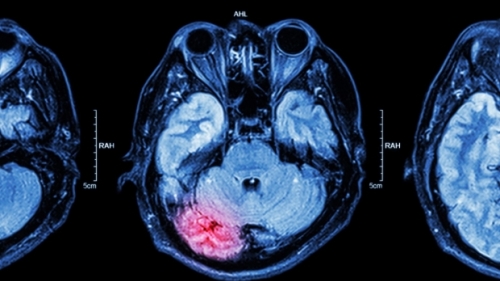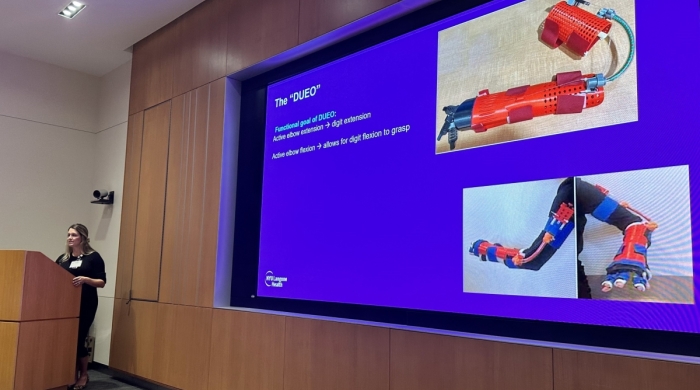In a comparison of processing speed vs. working memory, processing speed deficits had a significant effect.

MRI showing brain injury/GettyImages stockdevil
If you try to save a file while your laptop lags, it won’t save. Similarly, when our brains have delayed processing speeds, they "lag" and impair our ability to receive information and store a memory. Researchers find that for people with acquired brain injuries (ABI), slower processing speeds – slower rates of absorbing information – make it much more difficult to create and recall memories.
"Ultimately, this study explored the cognitive disruption that causes poor memory recall in people with a chronic brain injury,” says Gerald Voelbel, senior author of the study and associate professor of occupational therapy at NYU Steinhardt.
Research shows that more than 50 percent of people with an ABI (a brain injury that is not present at birth nor caused by disease) report memory deficits. With processing speed being responsible for the brain’s input of information, and working memory being responsible for data storage, the researchers sought to determine the impact of each process on immediate and delayed memory recall.
These findings suggest that cognitive rehabilitation techniques should focus on improving processing speed for people living with a chronic acquired brain injury to improve their memory ability and quality of life.
For their study, published in Brain Injury, the researchers tasked 63 individuals with ABI (ages 18-70) with a series of tasks called CNS Vital Signs that test performance on measures of processing speed, working memory, visual memory, and verbal memory. One such test requires participants to memorize 15 words on a monitor and recall them from a list of original words combined with distractor words. They were asked to repeat this task 30 minutes later. Another task required the same activity, but with colored figures instead of words.
The researchers found processing speed, but not working memory, to be a significant predictor of delayed verbal recall and overall memory.
“These findings suggest that cognitive rehabilitation techniques should focus on improving processing speed for people living with a chronic acquired brain injury to improve their memory ability and quality of life,” Voelbel says.
Maria Camilla P. Estelle, an NYU graduate and clinical research coordinator at Memorial Sloan Kettering Cancer Center, coauthored the study.
This study was funded by the New York University Research Challenge Fund.
Press Contact
646-469-8496
Related Articles
Department of Occupational Therapy 2023 Faculty Highlights
Highlights from academic year 2022-2023 by the faculty members of the Department of Occupational Therapy.
Rehabilitation Sciences Research Featured at Rusk Rehabilitation 75th Anniversary Research Symposium
Core faculty, as well as current and former students representing the PhD program in Rehabilitation Sciences, presented recent research at the NYU Rusk Rehabilitation 75th Anniversary Research Symposium on September 22, 2023.
Rehabilitating Your Brain with the Touch of an App
Gerald Voebel, associate professor of Occupational Therapy, discusses the role apps can play in the rehabilitation of patients with traumatic brain injuries.
Related Department

Occupational Therapy
Pless Hall, 82 Washington Square East, 6th Floor
New York, NY 10003
Phone: 212-998-5825
Email: occupational.therapy@nyu.edu



